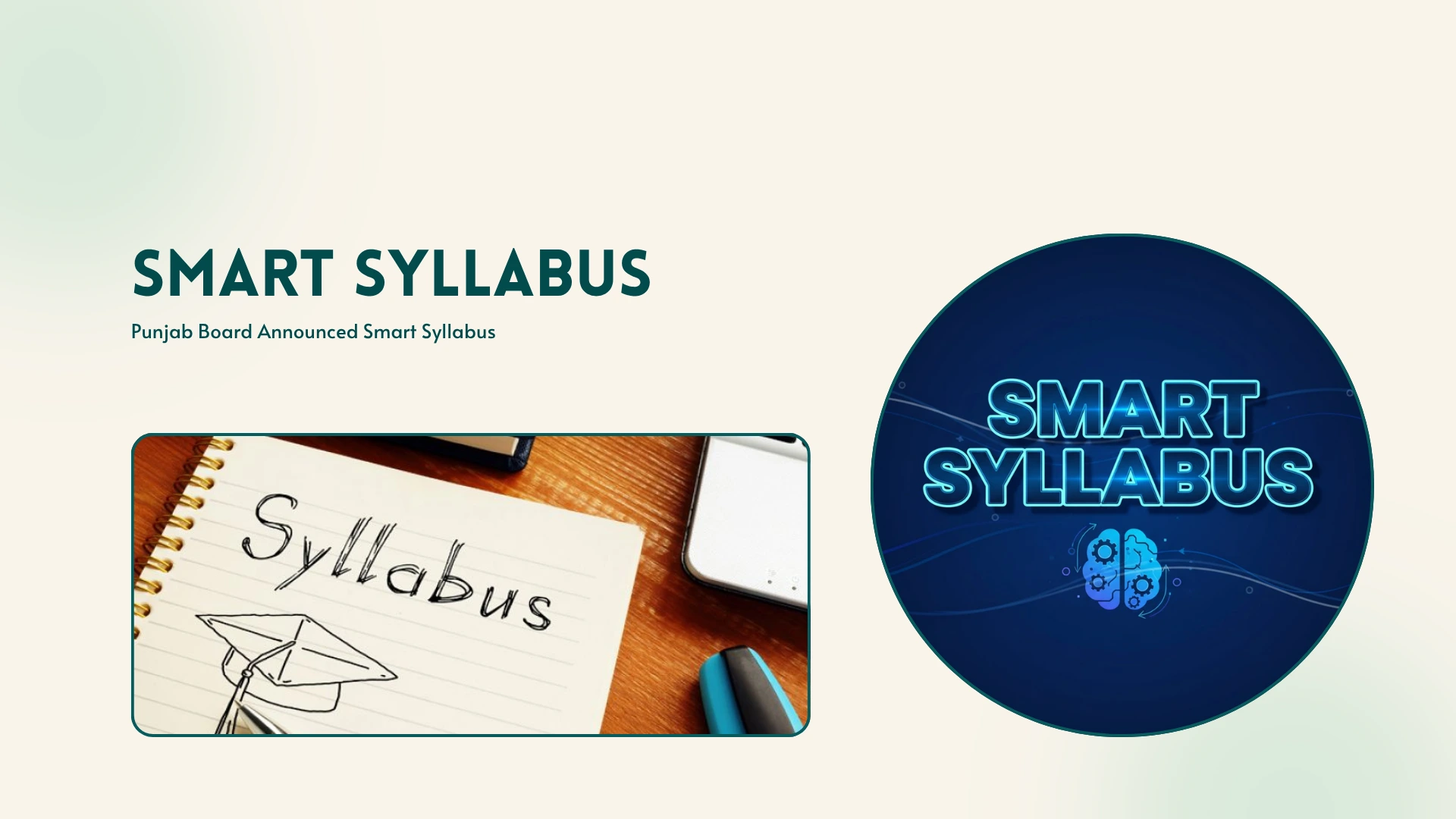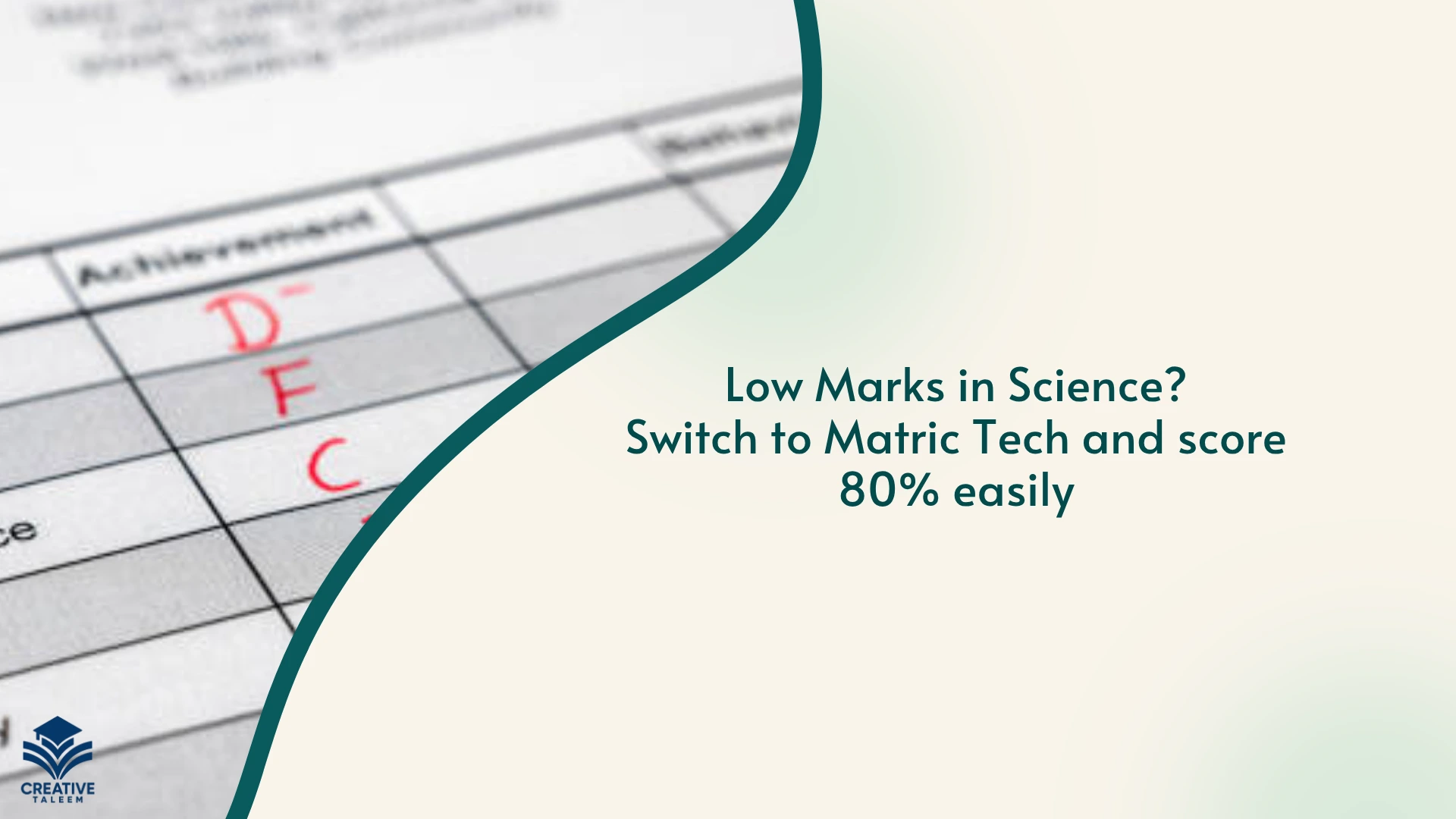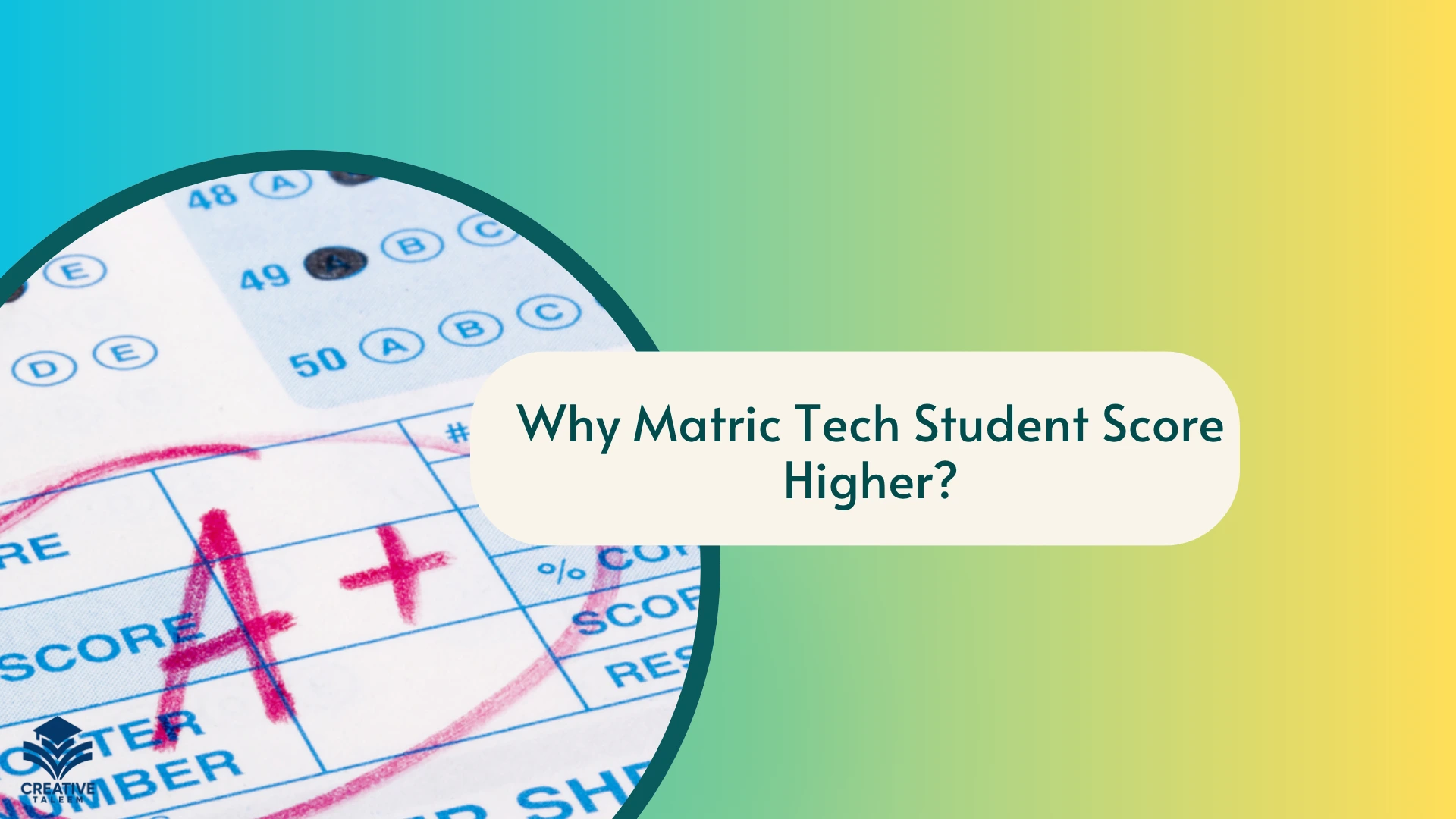9th Class Punjab Board Smart Syllabus 2026: Your Second Chance to Score Big
Punjab Board has reduced 40-50% syllabus for 9th class students in 2026. Learn how this smart syllabus gives you a golden opportunity to score 70-80% marks even if you haven't studied all year.

Listen, I know exactly what you're thinking right now. It's already late October, and you haven't touched your books properly all year. Your 9th class exams feel like a disaster waiting to happen. But here's the thing that nobody is telling you clearly: Punjab Board has just given you the biggest gift possible. They've reduced the syllabus by 40-50%, and this isn't like before. This is your actual golden chance to turn everything around.
What Exactly is This Smart Syllabus?
Punjab Board's Education Ministry announced the smart syllabus for Matric Part-I (Class 9th) in 2026, and it's different from what happened before. Yes, we had smart syllabus back in 2021 too, but that was because of COVID-19. Everyone was stuck at home, online classes weren't working properly, and students genuinely couldn't cover the full course.
This time there's no COVID. There's no pandemic. So why did Punjab Board reduce the syllabus again? The main reason was the devastating floods (saylab) that hit Pakistan. Entire schools were underwater. Students lost their books, their notes, everything. Many couldn't attend school for months. The disruption was massive, and the education system had to adapt.
But here's another huge reason: almost all the matric books changed this year. New syllabus, new topics, new structure. Students and teachers both were confused. Nobody had proper notes ready. Academies were struggling to prepare materials. It was chaos, honestly. So the smart syllabus became necessary to give everyone a fair chance.
The Big Difference: 2021 vs 2026 Smart Syllabus
Pay close attention to this part because many students are getting confused. In 2021, when the smart syllabus came out, it listed specific topics and chapters. Whatever was written in that list, you had to study. Those topics were included, and the rest was excluded.
But the 2026 Punjab Board smart syllabus works completely opposite. Whatever topics are listed in the smart syllabus document are EXCLUDED. You don't have to study them. Everything else that's NOT mentioned in that list is what you need to prepare. It's backwards from last time, and this is causing confusion for many students and even some teachers.
So when you look at your smart syllabus sheet, remember: the topics written there are the ones you can skip. Focus your energy on everything else in your textbooks. This makes planning your studies much easier because you know exactly what to ignore.
Why 2026 is Special for Pakistani Students
Something incredible happened in Pakistan's education system in 2026 that's giving students more options than ever before. The government launched Matric Tech, which is honestly revolutionary. Instead of forcing everyone into the same Science or Arts track, students can now choose fields that actually match their interests and skills.
Matric Tech offers practical education in fields like IT, Fashion Design, Agriculture, Health Sciences, Electrical Wiring, AC Repair, and so many others. These aren't just theoretical subjects. These are real skills that lead to actual jobs and businesses. Students who struggled with traditional science subjects are now scoring 70-80% because they're studying what makes sense to them.
So the combination of smart syllabus plus Matric Tech options means Pakistani students have more opportunities in 2026 than any previous generation. You're not trapped anymore. You have choices, and those choices can lead to real success.
The Golden Opportunity for Students Who Didn't Study
Let me be straight with you. If you're one of those students who wasted the whole year, maybe you were busy with other things, maybe you just didn't feel motivated, maybe you thought you had more time, whatever the reason, you're probably panicking right now. But take a deep breath because I'm about to explain why you can still succeed.
With 40-50% of the syllabus removed, you now have a much more manageable amount of content to cover. If you start seriously studying from November and stay consistent until March, you can cover approximately 70-80% of the remaining syllabus. That's not just my opinion. I've seen it happen with countless students over the years.
Think about it mathematically. The original syllabus was 100%. Now it's reduced to roughly 50-60%. If you cover 70-80% of that reduced syllabus, you're actually studying about 35-48% of the original full course. But here's the beautiful part: matric exams give you so much choice. Multiple questions to choose from, optional sections, various ways to approach answers.
So even if you only properly study 40% of the original syllabus (which is totally achievable with the smart syllabus), you can easily score 60% marks. If you're smart about which topics you focus on and you understand the exam pattern, reaching 70% or even higher is absolutely possible.
Smart Strategy to Cover Syllabus from November to March
Okay, so you have November, December, January, February, and March. That's five months. Your exams probably start in late March or early April, which gives you roughly 4-5 months of proper study time. Here's how to make the most of it.
November: Get Your Foundation Right
First, get the official smart syllabus document from your school or the Punjab Board website. Go through it carefully and mark all the excluded topics in your books with a highlighter or pencil. This visual marking will save you from accidentally wasting time on excluded content.
Next, make a realistic timetable. Don't be overly ambitious with something like "I'll study 10 hours daily." That's not sustainable. Start with 3-4 hours of focused study daily. Quality matters more than quantity. Identify which subjects are your weakest and which topics within those subjects are most important for exams.
December & January: Build Momentum
These two months are your power months. This is when you need to cover the maximum content. Focus on understanding concepts, not just memorizing. When you understand something properly, it sticks in your memory much longer and you can answer questions even if they're worded differently in the exam.
For subjects like Physics, Chemistry, and Biology, focus on the chapters that typically carry more marks. Usually, numerical problems in Physics and Chemistry are easier to score in because you follow a formula. Diagrams in Biology are mark-friendly if you practice them properly. For languages (Urdu, English), read the lessons and practice writing answers in your own words.
February: Practice and Revision
By February, you should have covered most of your syllabus. Now it's time to practice with past papers. Look at the 9th class pairing scheme to understand which chapters are paired together in papers. This helps you predict question patterns.
Solve at least last 3-5 years' papers for each subject. Time yourself while solving to build exam temperament. Check your answers, identify weak areas, and revise those topics again. This practice phase is where average students become good students and good students become excellent students.
March: Final Polish
This is revision month. Go through your notes, key concepts, important formulas, and difficult topics one final time. Don't try to learn new things in March. Just strengthen what you already know. Practice writing speed because in matric exams, time management is crucial.
How to Use Smart Syllabus to Your Maximum Advantage
The smart syllabus isn't just about having less to study. It's about studying smarter. When you know certain topics are excluded, you can spend more time deeply understanding the included topics instead of superficially covering everything.
For example, let's say in Chemistry, two full chapters are excluded from the smart syllabus. Instead of rushing through all chapters including those two, you can now spend that saved time really mastering the important chapters. You can practice more numerical problems, understand chemical reactions better, and memorize formulas properly.
This depth of understanding is what separates students who score 60% from students who score 75-80%. When exam questions are slightly twisted or asked differently than expected, students with deep understanding can still answer correctly. Students who just crammed superficially get stuck.
What If You Feel It's Still Too Much?
Look, I understand. Even with 40-50% reduction, the remaining syllabus might still feel overwhelming, especially if you're weak in certain subjects. If traditional science subjects are giving you nightmares despite the smart syllabus, maybe it's time to consider whether you're on the right educational track.
This isn't about giving up or being weak. It's about being smart and honest with yourself. If you're constantly struggling with Physics, Chemistry, and Biology, and you know deep down that these subjects don't match your abilities or interests, then maybe switching to Matric Tech is the better choice for your future.
Matric Tech students are scoring 75-85% marks easily because they're studying subjects they actually understand and enjoy. A student who can barely pass Chemistry might excel in Fashion Designing or AC Repair because that matches their natural skills. There's no shame in choosing the path that works for you.
The Reality Check: This Might Be Your Last Easy Chance
I need to be honest with you about something important. This smart syllabus situation probably won't last forever. It happened in 2021 due to COVID. It happened in 2026 due to floods and syllabus changes. But what about 2027 and beyond? Most likely, things will return to the full syllabus.
So if you're in 9th class right now in 2026, you're incredibly lucky. You have this reduced syllabus advantage. But if you waste this opportunity too, if you continue not studying seriously even when the burden has been reduced by half, then honestly, that's going to be your own bad luck and nobody else's fault.
Future students might look back and say, "Those 2026 students had it so easy with smart syllabus and Matric Tech options. We have to study the full course." Don't be the person who had the opportunity and wasted it. Five months is enough time. The syllabus is manageable. The choice options in exams are generous. Everything is in your favor. The only variable that matters now is your effort and consistency.
Final Words: Make This Your Comeback Year
Whether you wasted the whole year playing games, scrolling social media, or just not taking studies seriously, that's all in the past now. What matters is what you do from this moment forward. The smart syllabus has given you a legitimate second chance. Don't waste it.
Start today. Not tomorrow, not next week, not after some wedding or event. Today. Get your books, check the smart syllabus exclusions, make a simple study plan, and start with just one chapter. Build momentum gradually. Before you know it, you'll be covering topic after topic, and by March, you'll be ready for your exams.
Remember, scoring 70-80% isn't some impossible dream. With smart syllabus, focused effort, and consistent study over the next five months, it's completely achievable. Students who were panicking in October have turned things around by March and scored excellent marks. You can be one of them too.
For more detailed guidance, study materials, and smart strategies, visit Creative Taleem. We're here to help Pakistani students make the most of their educational opportunities. The smart syllabus is your golden chance. Don't let it slip away. Your future self will thank you for the effort you put in today.
Tags
Frequently Asked Questions
Q1.What is Punjab Board Smart Syllabus 2026?
Punjab Board Smart Syllabus 2026 is a reduced syllabus announced by Punjab Board's Education Ministry for Matric Part-I (Class 9th) students. It reduces the overall syllabus by 40-50%, meaning students have significantly less content to study for their exams while still receiving the same matric certificate.
Q2.How much syllabus has been reduced for 9th class in 2026?
Punjab Board has reduced approximately 40-50% of the syllabus for 9th class students in 2026. This reduction varies by subject, but overall, students now have about half the original course content to prepare for their exams.
Q3.Is the smart syllabus different for each subject?
Yes, the smart syllabus reduction is different for each subject. Each subject has its own list of excluded topics and chapters. You need to check the official smart syllabus document for your specific subjects to know exactly which portions are excluded from your exams.
Q4.Will smart syllabus continue in future years?
The smart syllabus was introduced due to specific circumstances like floods and major curriculum changes. It's unlikely to continue indefinitely. Students in 2026 should consider this a special opportunity, as future years may return to the full syllabus requirements.


